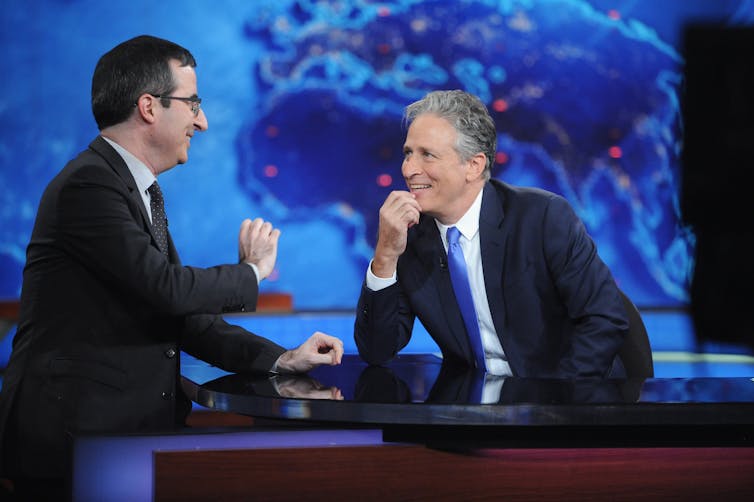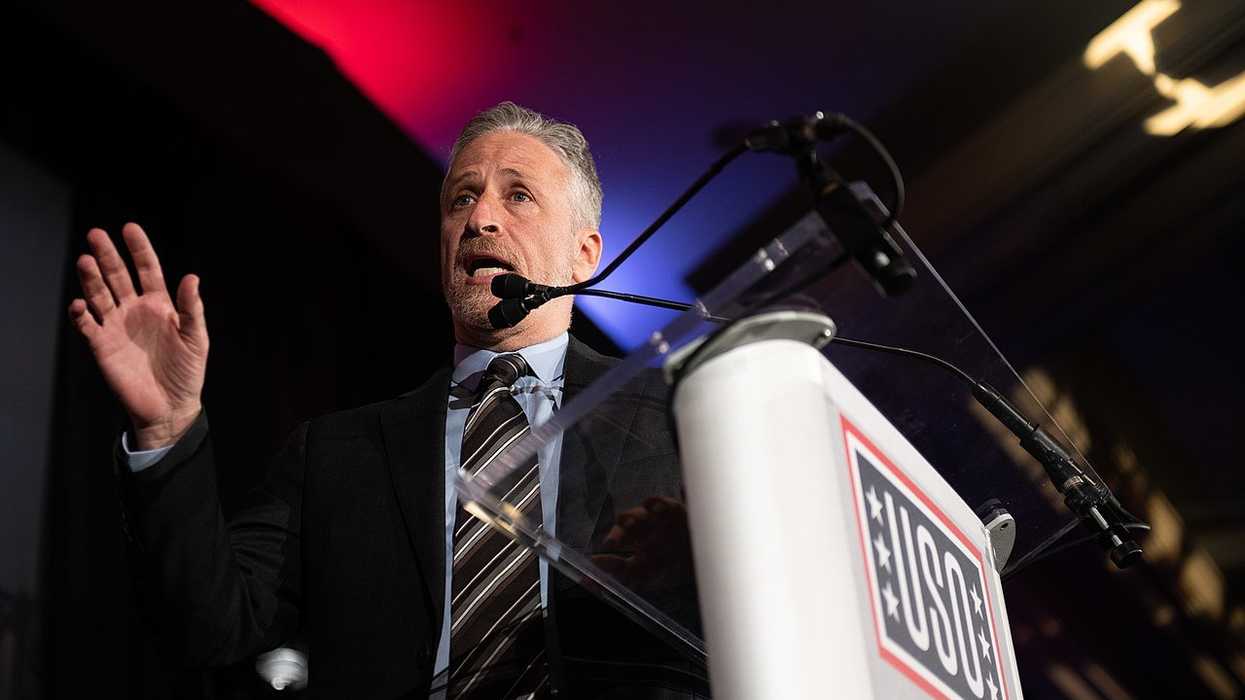In pursuit of these voters, Trump’s strategy wasn’t demagoguery but comedy.
Trump’s October appearance on comedian Andrew Schulz’s podcast, “Flagrant,” demonstrated his approach to the touchy issue.
Schulz playfully invoked Trump’s youngest son, who’s a student at New York University – “Barron is 18. He’s unleashed in New York City. Are you sure you want to reverse Roe vs. Wade now?” After a beat, Trump laughed, Schulz laughed, and then, presumably, thousands of young male listeners joined in.
Trump continued with boilerplate answers about states rights, but this substance – as is so often the case – was divorced from the strategy. Schulz had helped Trump turn an unpopular position into a frat boy punchline, something to be discarded along with last night’s empties. Trump won that media cycle and, ultimately, a majority of the votes of young men on his way to a second White House win.
Podcaster Andrew Schulz pokes fun at the touchy issue of abortion in an interview with Donald Trump on Oct. 9, 2024.Vice President Kamala Harris, by contrast, appeared on mainstream comedy shows with aging, liberal audiences like “The Late Show with Stephen Colbert.” Pundits criticized her failure to engage young voters in online comedy platforms. They also urged liberals to develop a new crop of political comedians to match the influence of Schulz and podcaster Joe Rogan.
However, these criticisms of Harris’ strategy miss the failure of liberal comedians to evolve with media and political trends.
While Jimmy Kimmel cries and Jon Stewart rants, the right wing in the U.S. has successfully depicted itself as the new home for free speech and cutting edge comedy. We explored this development in our book, “That’s Not Funny: How the Right Makes Comedy Work for Them.”
The right has become a home for comedians not by making political arguments through jokes, but by positing that there are funnier things to do than to argue.
A formula goes stale
Liberal comedy and political satire have stuck to the same formula of Stewart’s “The Daily Show” for much of the 21st century.
It goes something like this: A sarcastic, eloquent host uses meticulously researched data to describe a pressing social issue, and then delivers a punchline directed at right-wing hypocrisy. The resultant pairing of righteous laughter and anger has been repeated by “The Colbert Report,” “Full Frontal with Samantha Bee” and “Patriot Act with Hasan Minhaj,” among other comedy programs.
These satirical shows filled the void left by an increasingly profit-driven news media. However, they have come to prioritize political preaching at the expense of laughs.
Perhaps Stewart’s most successful successor – and the best example of liberal satire’s patronizing tone – is HBO’s “Last Week Tonight with John Oliver.” Because the show appears on prestige cable, Oliver has a bigger budget to tackle controversial topics in depth.
Indeed, journalists and academics alike have celebrated the “John Oliver effect,” in which viewers mobilize behind a cause shortly after the host devotes an episode to it, whether it’s vaccines or internet regulation.
Oliver’s long-form lectures can be compelling. However, his appeal is not to young undecided voters who can’t afford HBO, but to college-educated liberals predisposed to support progressive reforms.
Twice in a recent election postmortem episode, he reminded viewers of topics his show has covered in depth, like a professor chiding students for not remembering recent lessons. In one segment about Trump’s disingenuous economic message, Oliver pleaded that his show had already “explained inflation for 24 human minutes.”
While Oliver’s exasperation can be amusing, he’s clearly more upset at – even disdainful of – the American electorate, chastising them for failing the final exam of election night.
For liberals to reconnect with young voters – especially young men – we think they have to reinvent political comedy. Doing so will mean moving beyond the haranguing that has long been its primary delivery style. This will be a challenge, however, as the right fortifies the relationship between its own comedians and political power.



